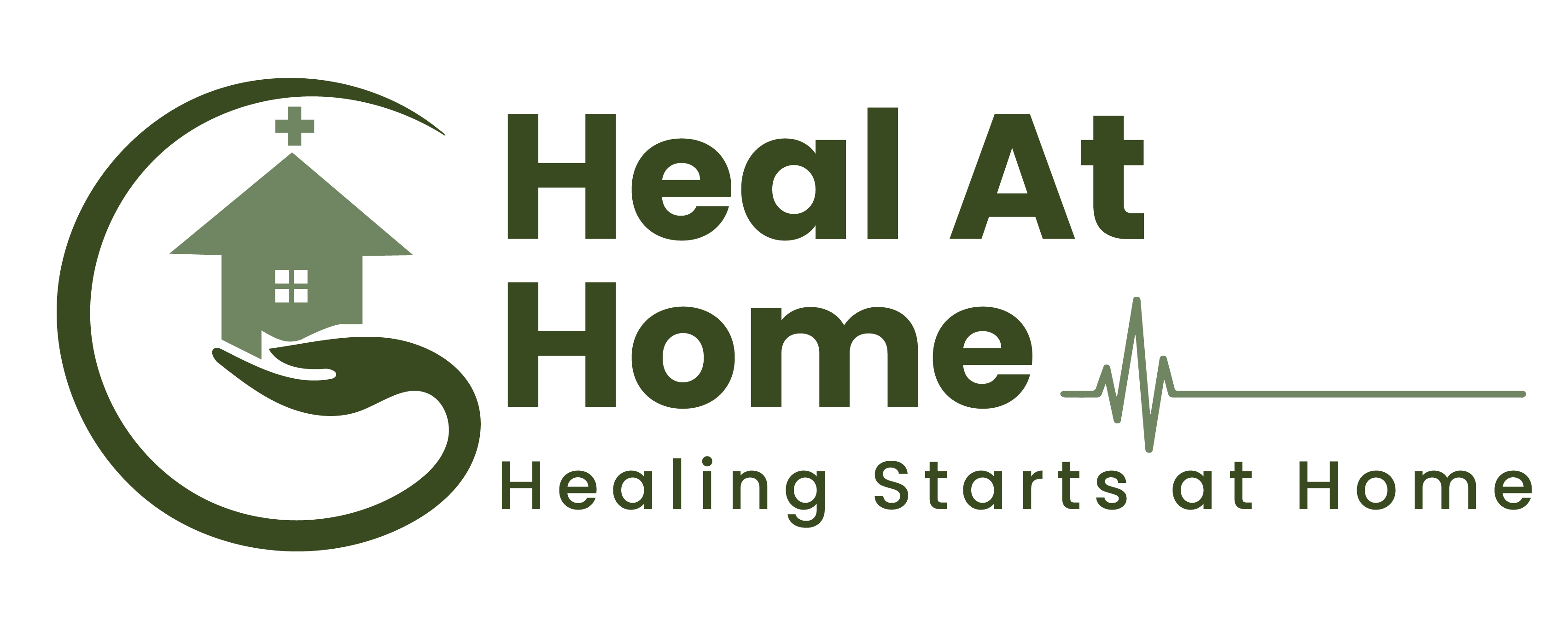Aging and Health concerns as time ushers in the golden years, it’s only natural that our perspectives and priorities shift. While the joys and experiences of a life well-lived are numerous, so too are the questions and worries that accompany the aging process. Whether you’re navigating these waters yourself or caring for a loved one on this journey, understanding the top concerns can provide valuable insights and a sense of empowerment.
In this guide, we’ll delve into the nine most common concerns that tend to take center stage in the lives of those who have reached this remarkable phase of life. From managing chronic health conditions to embracing cognitive vitality, from preserving independence to fostering meaningful connections, our exploration will touch on every aspect that shapes the narrative of aging gracefully.
So, whether you’re seeking ways to maintain an active lifestyle, grappling with the emotional nuances of aging, or simply curious about the challenges that unite us all, this is your compass for navigating the uncharted territory of the golden years.

Beyond the Years: A Closer Look at the Top 9 Aging and Health Challenges
Here are some common concerns that people over 65 may have regarding aging and their health. Keep in mind that individual concerns can vary widely based on factors such as personal health history, lifestyle, and cultural background. Additionally, the concerns might have evolved since then. Some common concerns include:
1. Chronic Health Conditions: As individuals cross the threshold of 65, a significant shift in focus often takes place, centering around the art of navigating and mitigating chronic health conditions. Conditions like diabetes, hypertension, heart disease, and arthritis emerge as prominent concerns that demand attention and thoughtful management. The once seemingly invincible bodies that have weathered the storms of time now bear the marks of these conditions, now becomes a priority. It’s not merely a matter of grappling with health issues, but rather a journey towards rediscovering what constitutes a good quality of life amidst these challenges.
Managing these chronic health conditions becomes a blend where medical advice melds with personal wisdom. The daily routines transform into medication schedules are met, dietary choices are aligned, and exercise regimens are embraced. These individuals exhibit a resilience that is born out of necessity – a resilience that thrives in the face of adversity, echoing the resounding commitment to not merely exist, but to flourish.
2. Cognitive Decline and Memory Issues: Cognitive decline and memory problems, including the fear of developing Alzheimer’s disease or other forms of dementia, are significant concerns. People may seek ways to maintain cognitive function through brain exercises, healthy diet, and social engagement. 
As the years gracefully accumulate, another intricate facet of aging comes into focus: the intricacies of cognitive function and the delicate dance with memory. It’s a chapter where the mind’s nimbleness, once taken for granted, takes on a profound significance. Amid this landscape, the specter of cognitive decline looms, accompanied by a palpable fear of encroaching Alzheimer’s disease and other forms of dementia. The mind’s canvas, once vivid and vibrant, is now tinged with a blend of concern and anticipation.
This chapter is woven with the threads of determination, curiosity, and a yearning to remain the author of one’s own story. Amid concerns, individuals discover an inherent strength that propels them to embrace brain-boosting challenges with a newfound enthusiasm. The specter of cognitive decline is met with a collective response, a resilient echo that affirms the potential to shape and sharpen the mind’s capabilities.
3. Mobility and Independence: Maintaining mobility and independence is crucial for older adults. Concerns may include the risk of falls, limited mobility, and the potential need for assistance with activities of daily living.
For seniors, preserving the ability to move freely and autonomously is not merely a matter of convenience, but a cornerstone of overall well-being. As age advances, the specter of mobility limitations, the looming risk of falls, and the possibility of requiring aid for day-to-day activities emerge as prominent concerns. The intricate interplay between these challenges necessitates a holistic approach to geriatric care and underscores the significance of proactive interventions. 
Addressing these issues involves a multi-pronged strategy that includes preventive measures to mitigate fall risks, personalized exercise regimens to enhance mobility, and fostering a supportive environment that empowers older adults to maintain their independence while receiving necessary assistance when needed. In a world that is rapidly aging, embracing a comprehensive understanding of these challenges is imperative for crafting solutions that enable seniors to lead fulfilling, active lives while upholding their autonomy and freedom.
4. Financial Security: Economic concerns, including retirement savings, healthcare costs, and long-term care expenses, are significant for many individuals as they age. Managing finances to ensure a comfortable retirement and cover potential healthcare needs is a common concern.
Delving deeper into the challenges faced by individuals aged 65 and beyond, an undeniable focus on financial security emerges as a critical dimension. The balance between aging and economic well-being becomes evident as retirees navigate an intricate landscape of retirement savings, healthcare expenses, and the potential burden of long-term care costs. 
The quest for financial stability is deeply ingrained in the fabric of aging, as individuals grapple with the task of not only securing a comfortable retirement but also safeguarding against the unforeseen financial implications of healthcare needs. With the rising costs of medical treatments and the uncertainty surrounding long-term care, ensuring a resilient financial foundation becomes a paramount concern. Consequently, meticulous planning, informed decision-making, and access to resources that empower individuals to make prudent financial choices are vital elements in alleviating the economic anxieties that often accompany the aging journey. Recognizing and addressing these challenges proactively is integral to fostering a dignified and stress-free aging process that allows seniors to enjoy their later years with the peace of mind that their economic well-being is well-cared for.
5. End-of-Life Planning: Thoughts about end-of-life decisions, including medical care preferences and estate planning, often become more prominent. Creating advance directives and discussing end-of-life wishes with loved ones can be important.
Taking a closer examination of the challenges faced by those aged 65 and above, the significance of end-of-life planning comes into sharp focus. As individuals navigate the later stages of life, contemplation regarding end-of-life decisions and arrangements assume a prominent role in their journey. The intricates of aging is interwoven with considerations about medical care preferences, ensuring a seamless transfer of assets through estate planning, and leaving a lasting legacy that resonates with one’s values. Crafting advance directives, which outline healthcare choices in critical situations, and engaging in open conversations with loved ones about end-of-life wishes are pivotal steps toward fostering a sense of control and tranquility during these crucial moments. 
The evolution of medical technology has made it imperative for seniors to reflect upon their choices and communicate them effectively to ensure their desires are honored. Embracing the challenges associated with end-of-life planning not only empowers individuals to take charge of their final chapters but also alleviates the burden on family members, allowing them to honor their loved ones’ wishes with clarity and compassion. In recognizing and addressing these challenges, older adults can navigate this profound aspect of their lives with dignity, peace, and a sense of purpose.
6. Healthcare Access and Quality: Access to quality healthcare and navigating the healthcare system are concerns. Finding healthcare providers who specialize in geriatric care and addressing potential gaps in healthcare coverage are important considerations.
Zooming in on the pivotal challenges confronted by individuals aged 65 and above, the realm of healthcare access and quality emerges as a paramount concern. Negotiating the intricacies of healthcare becomes increasingly complex as age advances, with a distinct emphasis on attaining and maintaining access to high-quality medical services.
The evolving healthcare landscape can present obstacles, including identifying healthcare professionals adept in geriatric care and bridging potential gaps in healthcare coverage. The quest for specialists well-versed in the unique needs of aging individuals underscores the importance of tailoring medical care to address the multifaceted challenges that accompany advancing years.
Additionally, navigating the healthcare system to secure essential services can be a daunting task, further accentuating the need for advocacy and support networks. By proactively addressing these healthcare challenges, older adults can not only secure the medical attention they require but also cultivate a sense of empowerment, ensuring that their health-related needs are met with the utmost professionalism and compassion. In fostering a comprehensive understanding of these issues, society can work toward enhancing the overall well-being and longevity of seniors by affording them the care and attention they richly deserve.
7. Nutrition and Healthy Aging: Older adults are concerned about maintaining a healthy diet and managing weight, as well as addressing nutritional needs that change with age.
Examining the challenges that encompass the lives of individuals aged 65 and above, a significant spotlight falls on the domain of nutrition and healthy aging. As the years advance, the pursuit of a balanced and nutritious diet takes on heightened importance, reflecting a quest to nurture well-being and vitality in the later stages of life. The intricacies of maintaining a healthy weight, combined with the awareness of shifting nutritional needs that accompany the aging process, bring forth a set of considerations. Striking a delicate balance between nourishment and managing weight is a cornerstone of maintaining overall health, resilience, and longevity. 
With age, the body’s requirements evolve, necessitating a thoughtful recalibration of dietary choices to encompass essential nutrients, vitamins, and minerals that aid in preserving cognitive function, bone health, and immunity. Thus, prioritizing nutritional well-being emerges as a central theme in the aging narrative, one that involves education, self-awareness, and adaptive eating practices. By recognizing the nuanced interplay between nutrition and healthy aging, older adults can embrace the profound benefits of a well-rounded diet that not only fuels their bodies but also enhances their quality of life well into the golden years.
8. Mental Health and Well-being: Mental health concerns, such as anxiety and depression, can affect older adults. Seeking mental health support and maintaining emotional well-being are important.
Delving into the intricate landscape of challenges that define the lives of individuals aged 65 and beyond, a spotlight falls unmistakably on the realm of mental health and well-being. While physical health often takes center stage, the significance of mental health becomes increasingly apparent as age advances. The specter of mental health concerns, encompassing anxiety, depression, and even cognitive decline, looms over this demographic. Acknowledging and addressing these issues, along with the stigma that may accompany them, is a pivotal step toward fostering a holistic approach to aging.
Seeking appropriate mental health support and engaging in activities that promote emotional well-being become not just important considerations but essential components of a fulfilling and meaningful life in the later years. With the recognition that mental health is as crucial as physical health, older adults can navigate the challenges of aging with resilience, grace, and an unwavering commitment to nurturing their emotional vitality. By embracing a comprehensive approach to mental health, society can contribute to the cultivation of an environment that cherishes the psychological well-being of seniors, allowing them to flourish as they continue to write the chapters of their life stories.
9. Palliative and Hospice Care: Discussions about palliative care and hospice care options may arise, especially for those with serious illnesses. Planning for comfort and support during the final stages of life is a significant consideration. As age advances, the contemplation of these care options becomes a poignant and essential consideration, particularly for those grappling with serious illnesses.
These discussions embody a profound recognition of the sanctity of life’s final stages and the importance of prioritizing comfort, dignity, and quality of life. The concept of palliative care encompasses a comprehensive approach, aiming to alleviate suffering and enhance overall well-being, irrespective of the prognosis.
Hospice care, on the other hand, offers a specialized form of support during the end-of-life phase, prioritizing pain management and emotional support for both the individual and their loved ones. By addressing these sensitive topics openly and thoughtfully, individuals can ensure that their wishes for end-of-life care are respected, cultivating an environment that honors the individual’s autonomy and values. Fostering a comprehensive understanding of palliative and hospice care equips us to provide the necessary compassion, empathy, and resources that allow seniors to navigate this final chapter of life with the grace, dignity, and support they deserve.

In conclusion, it’s essential to acknowledge that these concerns can vary greatly from person to person. Addressing these concerns often involves a combination of proactive lifestyle choices, regular medical check-ups, social engagement, and open communication with healthcare providers and loved ones. For the most current insights into the concerns of older adults, I recommend consulting reputable sources in geriatric medicine, psychology, and aging-related research.

